Don’t let certification pitfalls burn your business. Many importers face huge losses simply because they overlooked these 5 key certificates.
When importing chargers, always verify these 5 crucial certifications: FCC for US market, CE for EU, RoHS for environmental compliance, PSE for Japan, and UL certification for safety standards. Missing any of these could lead to costly recalls or legal troubles.
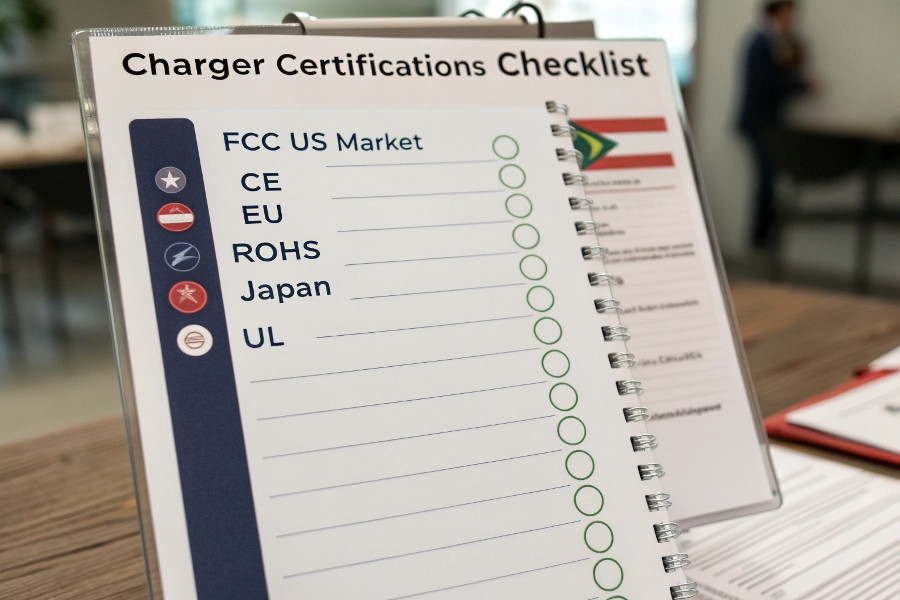
I still remember when one of my customers lost $120,000 because their shipment got rejected at customs for lacking proper certificates. The charger looked perfect, but without FCC marks, the entire container became worthless overnight.
1. FCC Certification: Why Is It Non-Negotiable for US Market?
Selling to American customers? Your chargers must have FCC certification1 – no exceptions.
FCC certification ensures your charger meets US electromagnetic interference standards. Without it, your products can be confiscated at ports or trigger costly lawsuits from interference complaints.
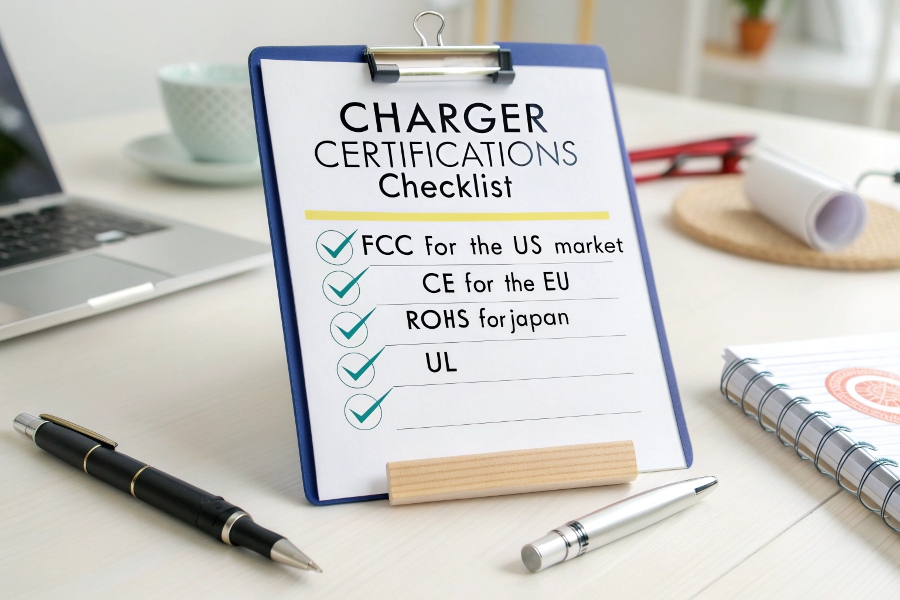
What Exactly Does FCC Cover?
The FCC focuses on two main concerns:
- EMI (Electromagnetic Interference): Your charger shouldn’t disrupt other devices
- RF (Radio Frequency) Exposure: Safe radiation levels must be maintained
I’ve created this simple table to explain the testing requirements:
| Test Type | Purpose | Failure Consequences |
|---|---|---|
| Radiated Emissions | Measures wireless signals | Causes TV/radio static |
| Conducted Emissions | Checks power line interference | Can disrupt other electronics |
| RF Exposure | Verifies safe radiation levels | Health hazard concerns |
At our FUMEI factory, we run pre-testing before the official FCC audit. This catches 90% of potential issues early, saving weeks of back-and-forth corrections.
2. CE Marking2: What Makes It the Golden Ticket to Europe?
Europe rejects non-CE chargers faster than you can say "compliance".
The CE mark proves your charger meets EU safety, health and environmental standards. It’s illegal to sell electronics in Europe without this mandatory certification.
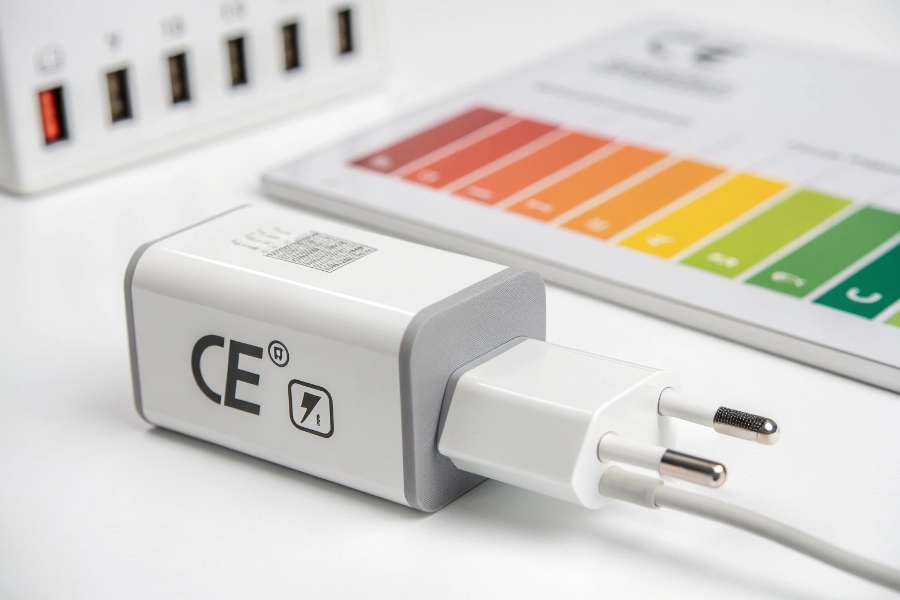
Breaking Down CE Requirements
CE certification involves two key directives:
LVD (Low Voltage Directive)
- Covers electrical safety
- Tests insulation, spacing, and shock protection
EMC Directive
- Addresses electromagnetic compatibility
- Prevents interference with other devices
Here’s a comparison of testing parameters:
| Test | LVD Requirements | EMC Requirements |
|---|---|---|
| Input Voltage Range | ±10% tolerance | N/A |
| Insulation Resistance | >10MΩ | N/A |
| Radiated Emissions | N/A | <30dB margin |
We maintain CE certification for all our charger models by keeping detailed technical files and annual factory audits.
3. RoHS Compliance: Are You Accidentally Importing Toxic Chargers?
Your competitors love when you ignore RoHS – that’s when regulators come knocking.
RoHS restricts hazardous substances (like lead and mercury) in electronics. Non-compliant chargers face destruction orders and €50,000+ fines in the EU.
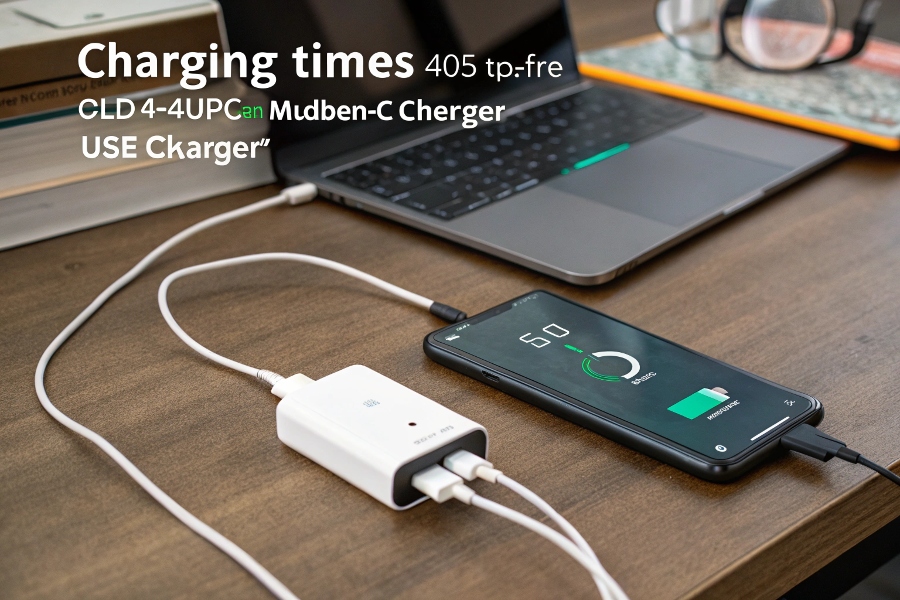
The Complete Restricted Substances List
Here are the 10 restricted materials and their limits:
| Substance | Maximum Concentration | Common Where Found |
|---|---|---|
| Lead (Pb) | 0.1% | Solder, coatings |
| Mercury (Hg) | 0.1% | Switches, lamps |
| Cadmium (Cd) | 0.01% | Batteries, pigments |
At FUMEI, we:
- Require material declarations from all suppliers
- Conduct random XRF scans on incoming components
- Keep batch testing records for 10 years
4. PSE Certification: How to Avoid Japanese Port Rejections?
Japan’s electrical safety laws are stricter than most – don’t learn this the hard way.
PSE certification is mandatory for all chargers sold in Japan. There are two types: Diamond PSE for high-risk devices (100V AC input) and Circle PSE for lower-risk items.
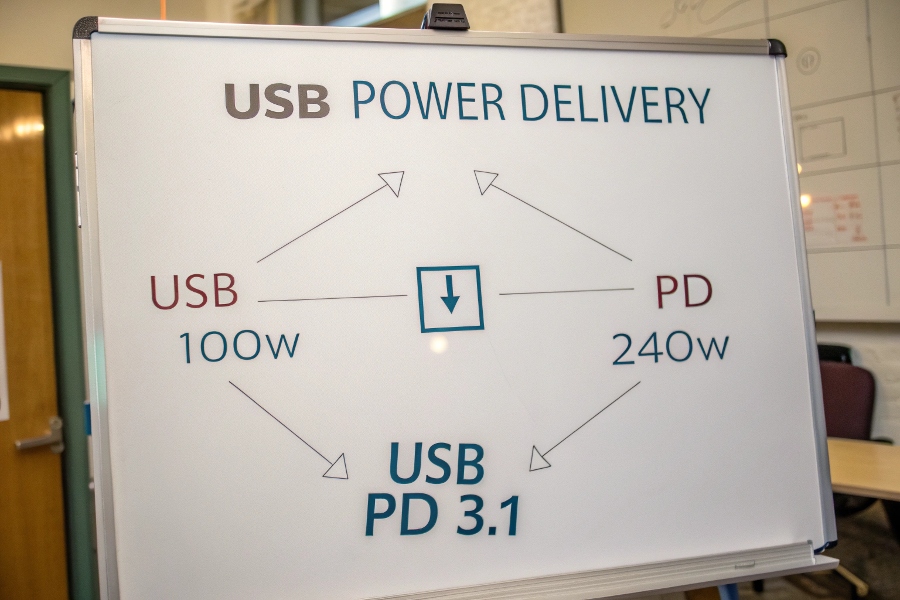
PSE Certification Pathways
| Type | Requirements | Applicable Products |
|---|---|---|
| Diamond PSE | Full testing + factory audit | AC adapters >100W |
| Circle PSE | Self-declaration | Most USB chargers |
Key tests include:
- Abnormal charging protection
- Overcurrent/overvoltage cutoff
- Insulation resistance testing
We help clients navigate PSE certification by pre-testing prototypes against JIS C 8712 standards before formal submission.
5. UL Certification: Is This "Optional" Standard Actually Essential?
Many buyers treat UL as optional – until Walmart or Amazon asks for it.
While not legally required, UL certification is demanded by most major retailers. It verifies your charger won’t overheat or cause fires – critical for avoiding liability lawsuits.
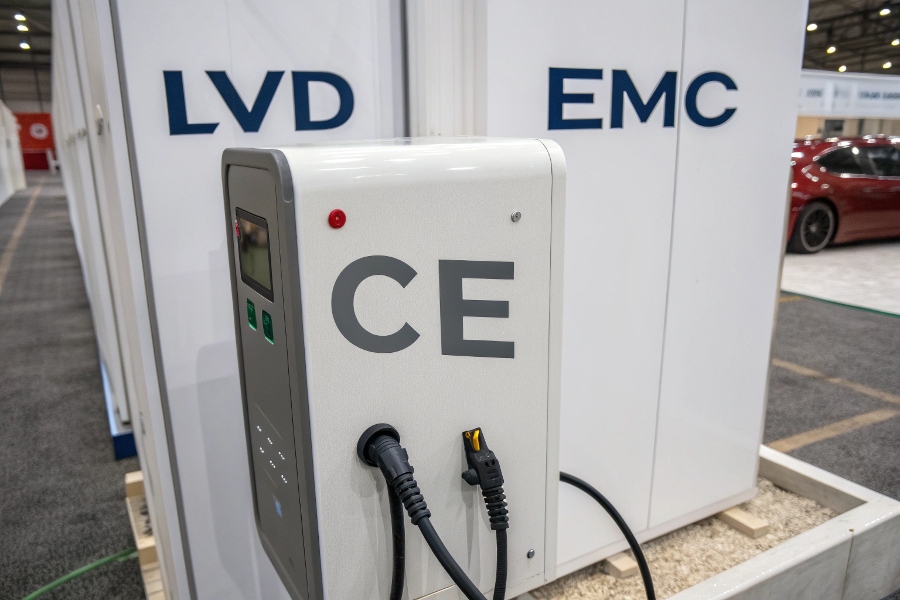
UL vs Other Safety Standards
| Standard | Coverage | Recognition | Testing Labs |
|---|---|---|---|
| UL | Comprehensive safety | North America | UL approved |
| CE | Basic requirements | Europe | Self-certified |
| CCC | Chinese market | China | CQC labs |
Our factory maintains UL certification through:
- Quarterly production line inspections
- Component traceability systems
- Annual re-testing of products
Conclusion
Always verify these 5 certifications before importing chargers: FCC, CE, RoHS, PSE and UL. Missing any could cost your business thousands in fines or rejected shipments. At FUMEI, we design all chargers to meet global certification requirements from day one – so you never face these costly mistakes.
-
Understanding FCC certification is crucial for compliance in the US market, ensuring your products meet electromagnetic standards and avoid legal issues. ↩
-
CE marking is mandatory for selling electronics in Europe, ensuring safety and compliance with EU regulations, which can prevent costly rejections. ↩
